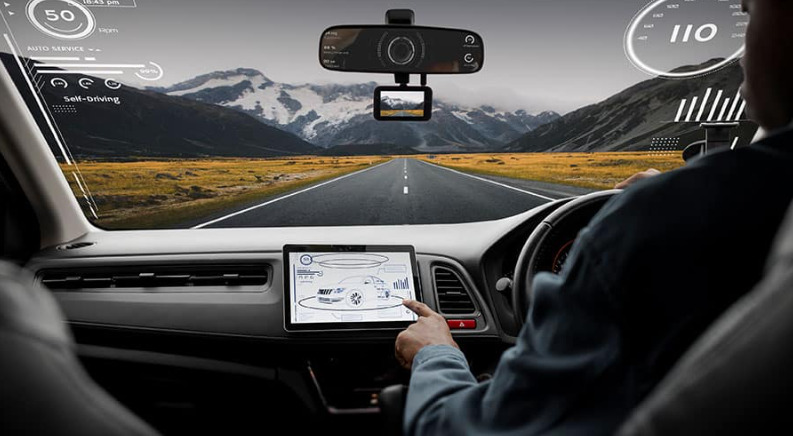
Embarking on the journey of learning to drive as an adult is both exciting and daunting. Unlike younger learners, adults often face unique challenges and anxieties when taking up driving. This guide aims to provide essential tips and insights to make the process smoother and more approachable. From choosing the right vehicle to understanding legal requirements, we cover the crucial aspects that every adult learner should know.
1. Understanding the Basics of Driving
Learning to drive as an adult can be a thrilling yet challenging experience. Unlike younger learners, adults often juggle driving lessons with other responsibilities like work or family. It’s important to start with understanding the basic rules of the road and traffic signs. Practicing in different environments, like city streets and highways, helps build confidence. Choosing a driving school that caters to adult learners can make the process more comfortable. Patience is key, as adults may take longer to become instinctive drivers. Remember, it’s never too late to learn, and mastering the basics is the first step towards independence.
2. Overcoming Anxiety and Building Confidence
Many adults experience anxiety when learning to drive later in life. It’s normal to feel nervous about handling a vehicle or making mistakes on the road. Breathing exercises and positive affirmations can help reduce stress before and during driving lessons. Practice is crucial; the more you drive, the more comfortable you will become. Instructors experienced with adult learners can provide tailored support and encouragement. It’s beneficial to start in less busy areas and gradually move to busier roads. Celebrating small milestones, like a successful drive to a nearby store, boosts confidence significantly.
3. The Importance of Choosing the Right Vehicle
Selecting the right vehicle is crucial for adult learners. Comfort and ease of handling should be top priorities when choosing a car. It’s advisable to start learning in a smaller car, as they’re generally easier to maneuver. Consider the visibility, seat adjustments, and responsiveness of the vehicle. Automatic transmission cars can be easier for beginners compared to manual transmission. Safety features like rearview cameras and blind-spot monitors can provide additional confidence. Remember, the car you learn in can significantly impact your driving experience.
4. Learning Road Safety and Defensive Driving
Safety is paramount when learning to drive, especially for adults who might be more cautious. Defensive driving courses teach how to anticipate and react to potential hazards. Understanding road safety rules, like right-of-way and speed limits, is essential. These courses often cover techniques to avoid accidents and handle emergency situations. Practicing these skills regularly helps in developing safer driving habits. Being aware of other drivers and staying vigilant can prevent many accidents. Adults learning to drive should prioritize safety over speed or efficiency.
5. Navigating Licensing and Legal Requirements
Every adult learner must understand the licensing process in their state. The requirements often include a written test, a vision test, and a road skills test. Being familiar with the specific documentation needed, such as proof of identity and residency, is important. Some states require adult learners to hold a learner’s permit for a certain period. Understanding the distinction between at-fault and no-fault states is crucial for insurance purposes. In at-fault states, the driver responsible for the accident bears the financial responsibility, while in no-fault states, each party’s insurance covers their own damages regardless of who caused the accident. Keeping abreast of these legal nuances ensures a smoother learning journey.
6. Balancing Practice with Professional Lessons
While professional driving lessons are invaluable, practice is equally important. Finding a patient friend or family member to accompany you during practice sessions can be beneficial. These informal sessions allow for practicing specific skills at your own pace. Ensure that the person accompanying you is a licensed and experienced driver. Balance is key; too much reliance on either professional lessons or private practice can be detrimental. Regular practice in varied road conditions and times of day is essential. Remember, the goal is to become a confident and safe driver, not just to pass the driving test.
7. Staying Committed and Embracing the Journey
Learning to drive as an adult requires commitment and persistence. It’s normal to have setbacks but don’t let them discourage you. Setting realistic goals and timelines helps in tracking progress. Remember that everyone’s learning pace is different, and comparing yourself to others is not productive. Seeking feedback from instructors and peers can help identify areas for improvement. Stay patient and committed to the learning process. Embrace this journey as a step towards greater freedom and independence.
Learning to drive as an adult is a significant milestone with its own challenges and rewards. This journey not only enhances personal independence but also opens up new opportunities. It’s important to approach learning with patience, determination, and the right mindset. With the right guidance, practice, and perseverance, mastering the skill of driving can be a fulfilling and empowering experience for any adult learner.